Republicans differ from the general public on who has it easier in the US
The Congressional hearings on the nomination of now-Supreme Court Justice Brett Kavanaugh exposed some divides of gender and party in American society. But there are other divisions, too. Americans see differences in how groups are treated: whites have an easier time of it than blacks, men have it easier than women, and the native born have it easier than immigrants do. But for one subset of the public, things are different. Republicans in the latest Economist/YouGov Poll are more likely than others to say more advantages in being black, female and an immigrant when it comes to getting good treatment.
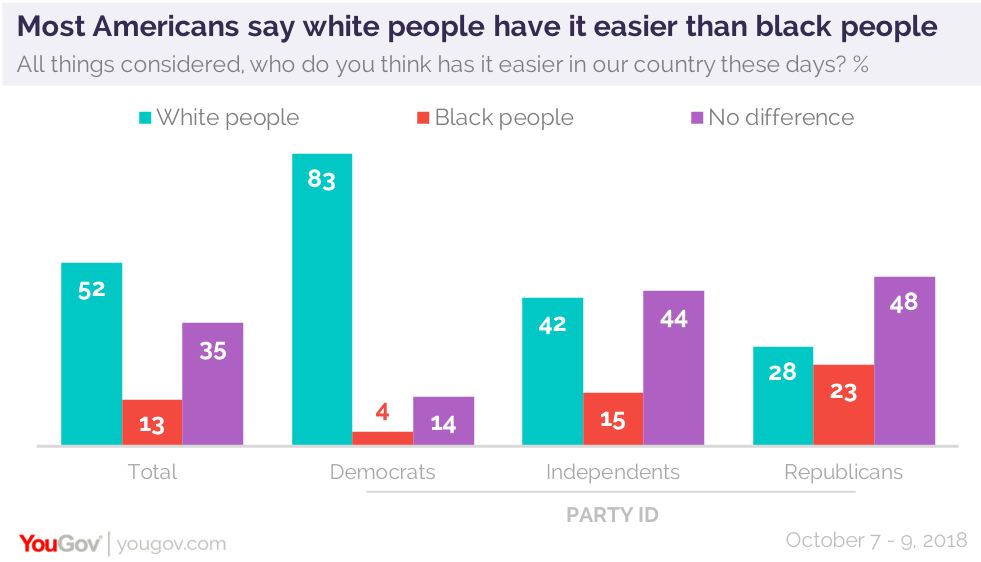
For some, this marks a change. Asked if this has always been the case, those who say it’s easier to be black, female or an immigrant, the answer is no. The larger public that believes men, whites, and the native born have an easier time of it say these groups have always enjoyed an easier life.
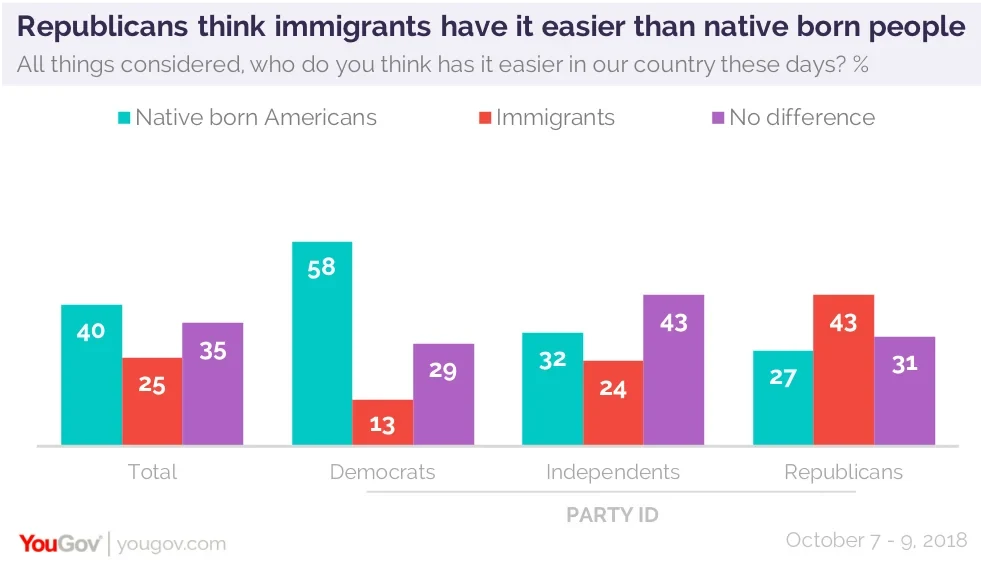
Republicans without college degrees are somewhat more likely to perceived immigrants having it easier than native-born Americans. As for the gender question, GOP men are often the ones making their party different. Although a majority of Republican women believe that neither men nor women have it easier today, Republican women are more likely to agree with the rest of the public and say men have it easier than women. GOP men think the opposite.
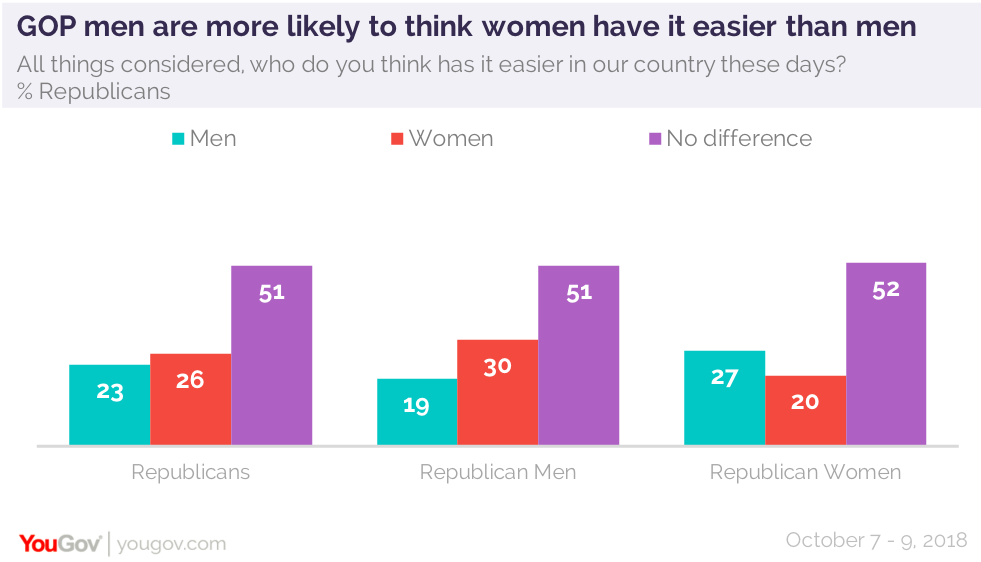
Perceptions of men, women, and the #MeToo movement have been affected by the conflict over the nomination and confirmation of Brett Kavanaugh to the Supreme Court. The poll results explain, in part, the President’s response to #MeToo, when he expressed concern about what could happen to young men. Most of the public is at least “somewhat worried” about young men being falsely accused of sexual assault. But there is more worry about young women becoming victims. But Republicans, particularly Republican men, are more likely to be “very worried” for young men.
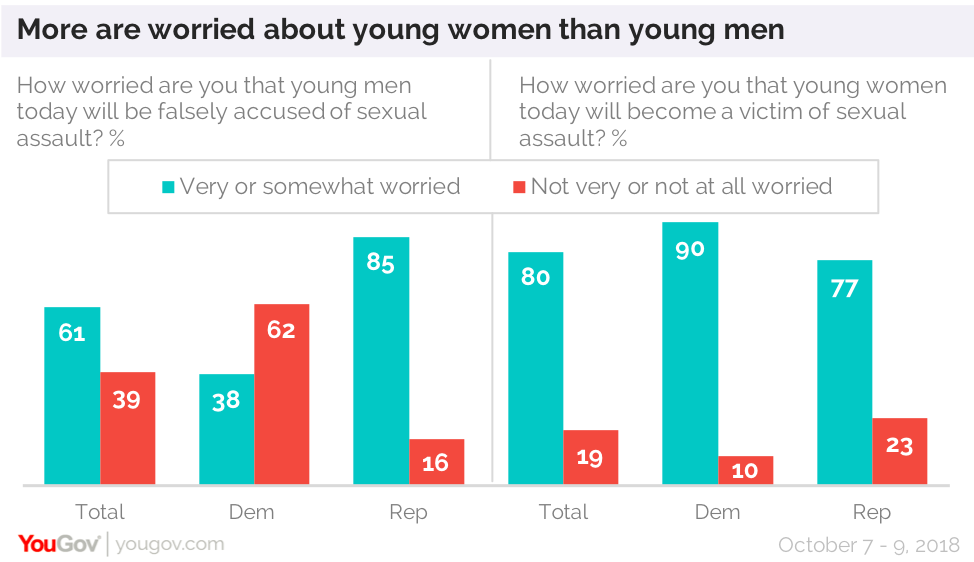
As for the “young men” themselves – those under 30 in this poll – 26% of them say they are “very worried” about being accused falsely, but even more, 41%, are very worried about young women becoming victims of sexual assault.
Instinctively, the public says they would believe the women, not the man, when a woman charges someone with sexual assault. That’s true for Democrats and Republicans, for men and women alike. Even those who say they are “very worried” about young men being falsely accused agree: 63% of them say they are more likely to believe a women who makes a claim of assault than to believe the man who denies it.
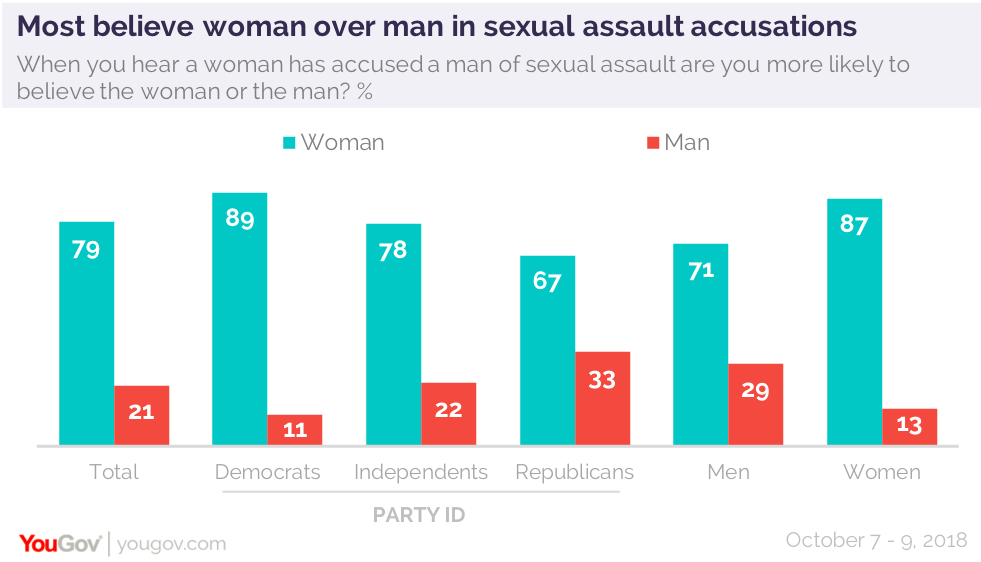
57% of all women – majorities of Republicans, Democrats and independents – say they have personally experienced an unwanted sexual encounter. The percentage rises with age and with education.
Three times as many Republicans now have an unfavorable opinion of the #MeToo movement than have a favorable view. Two-thirds of Republicans think the movement has gone too far, nearly twice the percentage of Americans overall who say this. Majorities of GOP women (even those who have experienced an unwanted sexual encounter at some point in time) as well as GOP men are negative about #MeToo and say it has gone too far. That is different from the public overall.
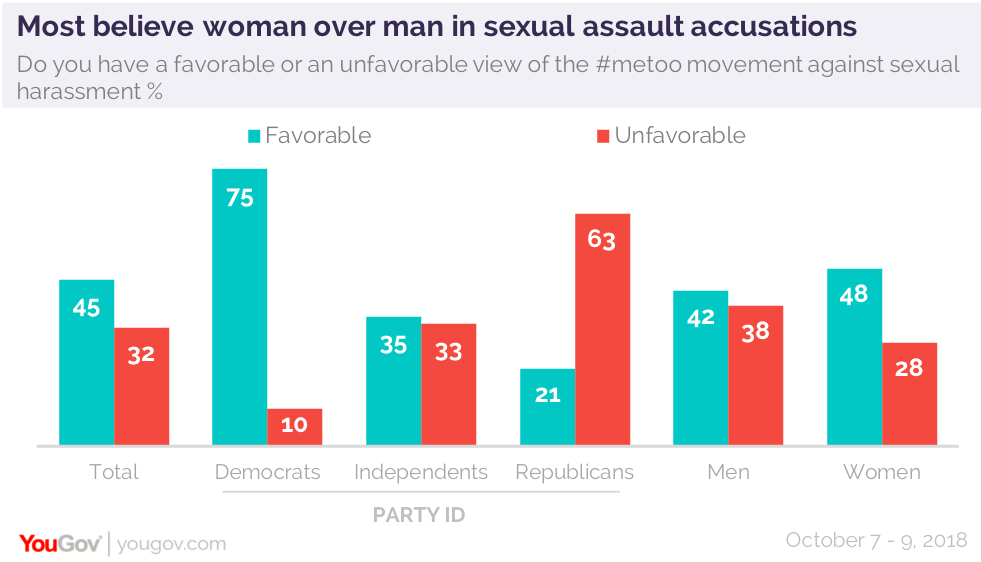
A sizable percentage of Americans see greener pastures for those who are not like them in their race, gender, or immigration status. The same is true when it comes to religion. Many of the most religious Americans, particularly Republicans, believe there are threats to religion, or at least threats to the Christian religion. When asked whether Christians or non-Christian Americans have it easier, there is a narrow plurality who say Christians do (though about half say there is no difference). The most religious, those who say religion is very important in their own lives, say non-Christians have it easier by about a two to one margin. A majority of very religious Republicans agree.
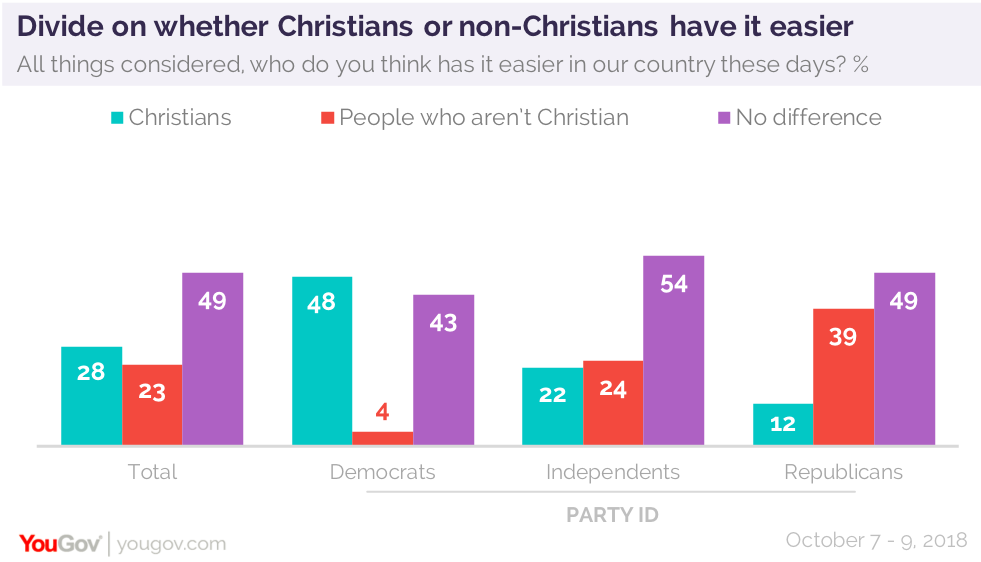
And the party divide, so visible on so many questions, also exists when it comes to perceptions of being on the short end of the stick. 41% of Republicans say Democrats have it easier in America; 65% of Democrats are sure Republicans do.
See full toplines and tables results
Image: Getty







